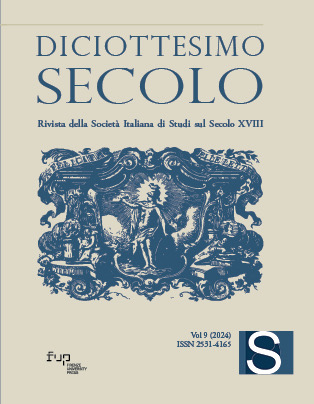‘Histriones sunt maximi’. I gesuiti di Palermo, le attività musicali e i rapporti con David Perez
Published 2024-07-12
Keywords
- David Perez,
- Palermo,
- Society of Jesus,
- Oratorio,
- Forty Hour Devotion
How to Cite
Copyright (c) 2024 Ilaria Grippaudo

This work is licensed under a Creative Commons Attribution 4.0 International License.
Abstract
During his years in Palermo (1734-1748), David Perez collaborated with various institutions, in particular with the Jesuits, before being appointed Vice-Master of the Palatine Chapel, around 1739. Undoubtedly, the Jesuits were among the most influential orders in Palermo, standing alongside other congregations, such as the Dominicans and the Theatines, with whom they often competed. This was particularly evident in relation to music, which the Jesuits considered a powerful instrument of consensus. For the Jesuits, Perez composed three Latin cantatas performed during graduation ceremonies, and Il ritorno di Tobia, ‘dramma per musica’ performed in 1753 for the Forty Hours. Such devotion was particularly promoted by the Society of Jesus, especially on a musical level. It is no coincidence that archival sources refer to the custom of proposing dialoghi especially during the Forty Hours. Numerous titles belonging to the genre were also attested to during the Christmas Novena and on other religious occasions. Archival documents provide information on the Collegio’s music chapel (founded in the first half of the 17th century), mentioning the masters in charge of the organisation, the hiring of professional musicians, the occasions that required musical accompaniment, repertoires, and the names of composers. At the same time, we learn about the musical habits of the Company in the 18th century, which was used to patronise new compositions, and also to rework existing works – including music by Perez – adapting them to the needs of the institution.

